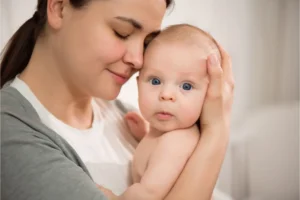On a bright Thursday afternoon, my wife came home with terrible news. “Grace doesn’t know how to say ‘hippopotamus,’ but her friend Alex does.”
A frightening development. We can’t have another 2-year-old outshining our little Harvard-bound protégé, can we?
Saying the word
So Angela and I begged and cajoled Grace to say “hip-po-pot-a-mus.” Nothing we did helped Grace pronounce that large, mud-dwelling mammal. Disappointed, we searched our stack of parenting magazines, Googled speech development and talked to veteran parenting friends.
By the end of our search, we discovered a revolutionary concept. Every child develops at her own God-given pace. We shouldn’t compare Grace to other children, including Alex — even if she is mumbling indecipherable gobbledygook and he’s quoting Dickens.
It’s you, not her
Letting go of our expectation for her to be perfect is hard, especially in our competitive parenting culture — one that pushes children to grow up fast and graduate early. Good parenting does not stem from a what-will-people-think attitude.
A few weeks after our hippopotamus scare, Grace started talking. We didn’t use flash cards or child development DVDs. It wasn’t anything we said or did.
Something inside just clicked, and Grace began uttering almost every word we asked her to say and many we didn’t.
Grace now shouts up the stairs, “Honenneeeyyy!” when she wants to get Angela’s attention. When we’re about to leave for church, she says, “C’mon, Daddy.” And she instructs her dolls to “stop it” and “go, nigh, nigh.” She’s the chatterbox of the church nursery and the entertainment at family gatherings. Grace is not afraid to say, “hi,” “bye” or “see ya” to complete strangers. But to this day, she can’t say “hippopotamus.”















